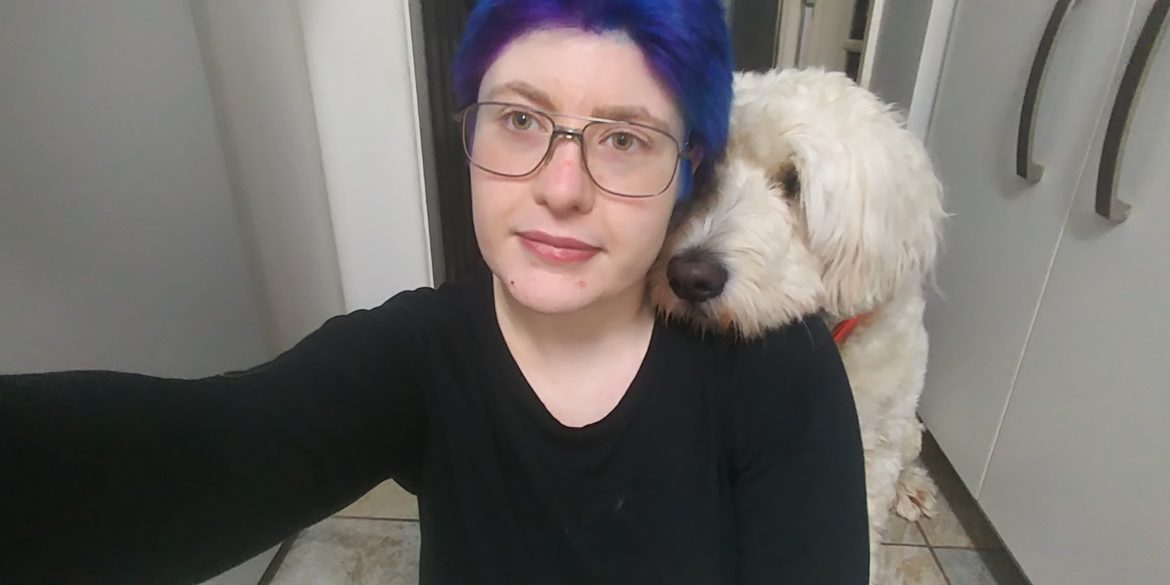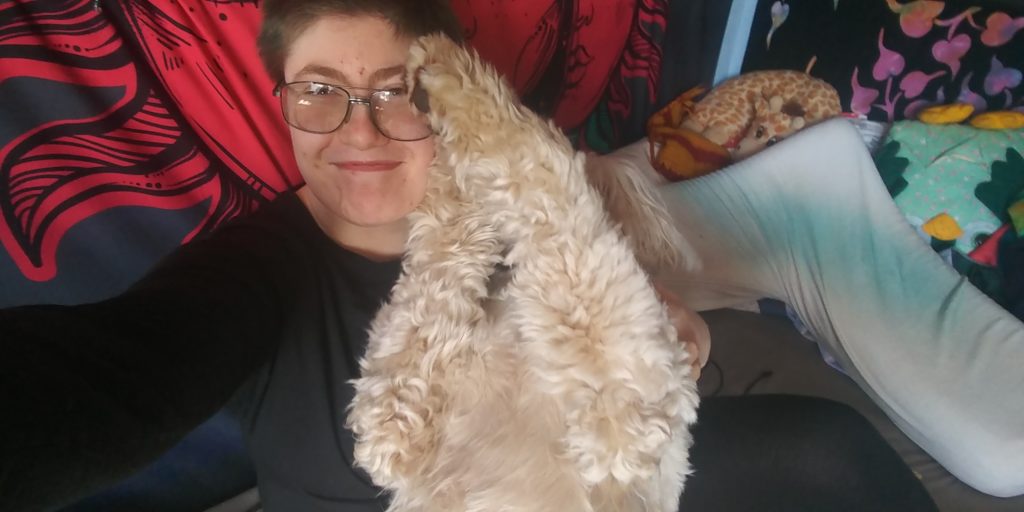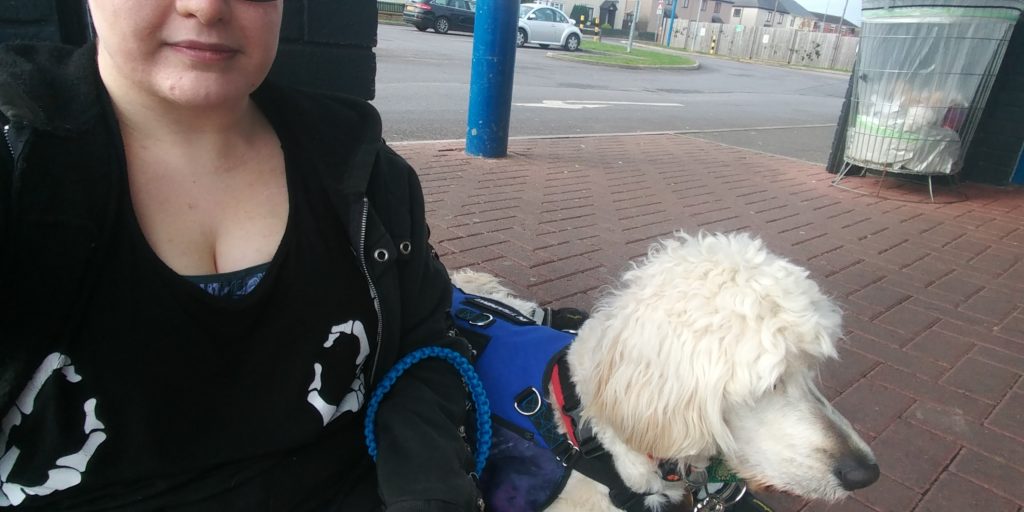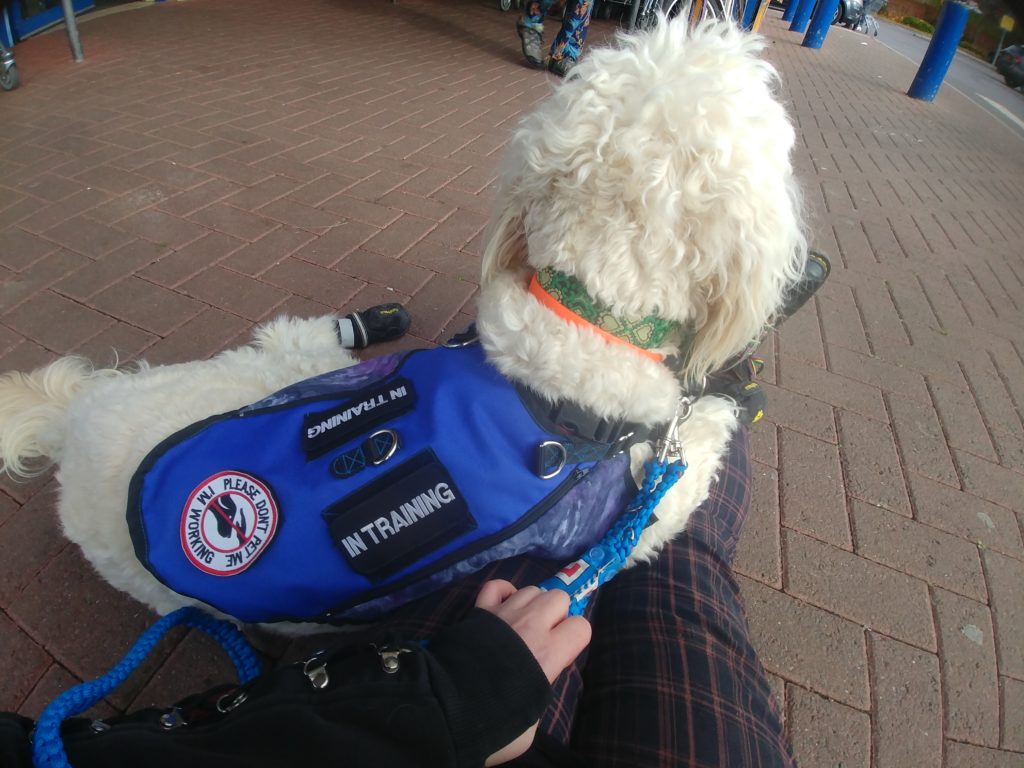Life with an AD, Warts & All
LIFE WITH AN ASSISTANCE DOG IS NOT ALL RAINBOWS AND UNICORNS. PHOENIX GIRAFFA GIVES YOU AN INSIGHT INTO THE CHALLENGES OF IT FROM THE PERSPECTIVE OF SOMEONE TRAINING THEIR ASSISTANCE DOG
Author: Phoenix Giraffa
When you hear the words “Assistance Dog”, most people think of these magical creatures that save lives and help people…the perfect trained dog! Now while this is true, its not 100% fact or the whole picture by any means.
Assistance dogs are amazing. Many of us would find life hard and sometimes near impossible to live without one! They give us independence just by what they are trained to do, they give us a reason to leave the house and get up in the morning. Mine was one reason that I decided changes needed to be made in my life. They also give love and hope when you have non! They are seriously amazing dogs.
…HOWEVER…
Assistance dogs are animals, living creatures, and therefore they have their own independent urges, reactions, thoughts and feelings and this makes them unpredictable! Even when we train them and set them up for success. For this very same reason, as animals, they get sick, scared, hurt. Everything that can go wrong with us as humans, can happen to them. This is when things get hard, and if you don’t have alternatives in place it is even worse, your whole life can stop because your assistance dog is out of action – whether they are injured, unwell or going through a difficult phase of reactivity (all of which can sometimes lead to them being ‘washed’).
People forget that these are still dogs, and because of that people judge hard when something goes wrong in public. Handlers work hard to bomb proof their dog, but just like people sometimes they spook at things or dislike stuff. For instance:
- Sparrow goes through phases of disliking of buggies (and anything on wheels directly behind her after being rammed one too many times by them)
- Eli doesn’t like surfaces that vibrate
- Po doesn’t like the metal shop shutters
- Buckley doesn’t like his butt being nudged by objects
So despite us doing a lot of training with them on these objects and socialising with them, it is still something they dislike because they are living creatures. They can develop a dislike or fear of something, seemingly out of nowhere. This can be hard and it is something you have to adapt to and often work on consistently.
Training your assistance dog is the best at times – it’s such an amazing way to bond with your dog, pass the time and have fun. The BEST part is you don’t even need to get dressed or leave your bed – how awesome is that?! Training with your dog never ends, you always have to refresh things, teach new things or even adapt what you’ve taught them; so you don’t stop strengthening that bond. It really is a joy and the satisfaction you get when you’ve taught them a new task, trick or whatever is amazing. Equally…it never ends. It is a commitment, a tiring, potentially draining commitment – one that sometimes lacks the positive results you’re wanting to see.
Training often brings satisfaction. But training in public brings its own challenges. Sure, you may still get the same satisfaction as at home when any training in public goes well, if not even more so because it’s a different and often more distracting environment. Distractions can be beneficial when you are training, but only really when you are prepared for them and unfortunately, members of the public often don’t grasp that it is rude and incredibly unhelpful to try to distract your dog (or any dog really). The public seem to love nothing more than making noises and trying to touch said dog as well, which adds a layer of difficulty to even the simplest of commands. People also watch you like a hawk, especially if you are in a non-pet-friendly environment, which when you have anxiety disorders can be very difficult. The pressure to get it right and not make a mistake is stressful, even if that stress and pressure is sometimes self-imposed (thanks to anxiety!)
Toilet accidents is something people forget happens to assistance dogs as well. While most (not all) are trained to go on command, things still go wrong! I know of people who have gone shopping with their AD and despite them being seemingly absolutely fine they’ve had explosive diarrhoea in a food shop. These things happen and dogs being dogs don’t always tell us they need to go. You hear stories of dogs vomiting in shops, and that is one of those things you just have to deal with (wipes, poo bags and disinfectant is a must to carry). It is embarrassing! Of course the public then judge you as if you have just dragged an untrained, sick dog into a shop, even though you haven’t.
It is the same with marking; both Po and Buckley have experienced their challenges with this, which we both are always working on, Buckley’s marked twice in pet friendly shops (much to my horror), and so has Po (much to Elmiri’s dismay). Thankfully Buckley has calmed down after his op, but this is something we have to deal with, particularly with male dogs.
To be honest, the list could go on about the bad things owning an assistance dog. The public suck most of the time, teenage dogs are horrid (although also funny at times), the anxiety that having an AD can bring can be crippling and that’s not even touching on money. Dogs cost a lot and ADs cost even more. Not forgetting that they go everywhere with you. Now while this may sound amazing, it is hard work – you have to plan everything, toilet breaks depending how long you’ll be out, treats, water, what bag to take etc. because it’s not just your stuff anymore, it’s theirs as well!
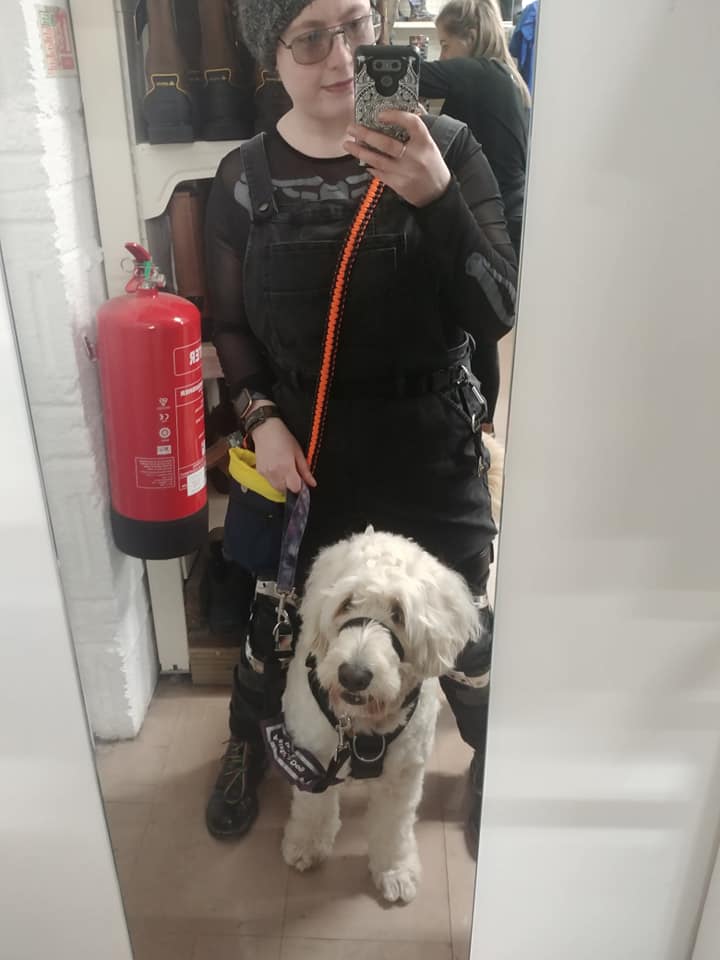
You may read this and think, “geez why do you have these dogs then?”, and the answer to that is: because they bring so much to our lives, and the issues we often face by having them are largely worth it, just to have the independence we get from having an AD. [Other than the public being a pain. Seriously guys, STOP DISTRACTING OUR DOGS! It makes life far harder than what it already is, which can be fairly challenging.]
Finally (and a frequent question we get asked), just because they are assistance dogs doesn’t mean they don’t get what pet dogs get as well. They still need walking, they still have to play – and it is our responsibility to ensure they get this in addition to everything else. They also get the love and fuss (if they want it) that pet dogs get so they aren’t not loved just because they are working.


